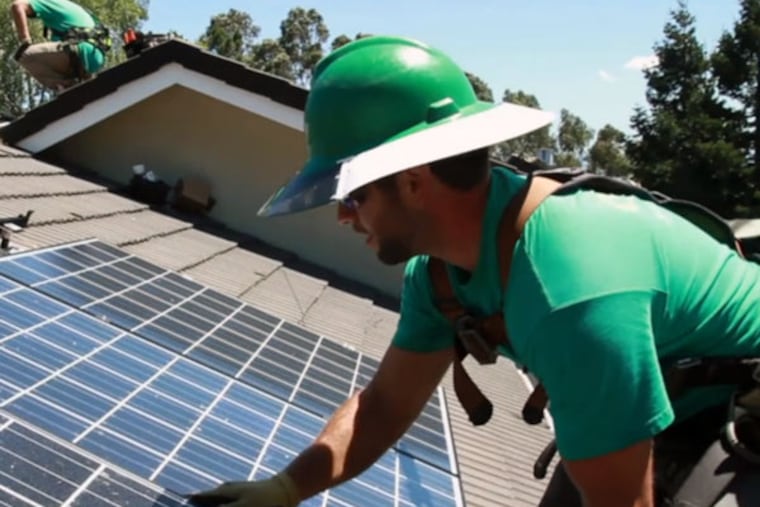Pushback expected on Pa. PUC's proposed new net-metering limits
The Pennsylvania Public Utility Commission moved forward Thursday to set controversial rules and limits for "net-metering" customers who generate their own power from sources such as solar cells.

The Pennsylvania Public Utility Commission moved forward Thursday to set controversial rules and limits for "net-metering" customers who generate their own power from sources such as solar cells.
The commission tentatively adopted regulations that would allow "customer-generators" to produce up to 200 percent of their annual power needs and receive retail electricity prices for any surplus they sell back to the grid.
Solar-energy proponents were encouraged that the PUC's rules were more generous than earlier proposals, which would have limited power production to 110 percent of power needs. But they questioned whether the PUC has the authority to set even a 200 percent limit.
"There's no legal basis in the statute to add that restriction," said Robert Altenburg, a senior energy analyst with PennFuture, who represented several environmental groups in the rule-making process.
The PUC's action will trigger a new round of comments before the commission approves final regulations. And those rules could come under legal challenge.
The complex rule-making procedure attracted much testimony last year, including support from power producers such as small-scale solar developers and farmers who produce power from digesters that capture gas from livestock manure.
The PUC's authority to regulate net-metering was outlined under the Alternative Energy Portfolio Standards Act of 2004. That law was amended by a 2008 law known as Act 129, which set targets for utilities to reduce energy demand.
Commissioner James H. Cawley said it was never intended in implementing Act 129 to "create business opportunities for generators who should be competing in the wholesale energy markets and not taking advantage of our efforts to encourage distributed generation in the implementation of net-metering."
He worried that the higher limit will encourage many small operators to "overbuild" power-generation capacity, crowding out others.
"It creates opportunities for early adopters, and destroys opportunities for late adopters, when the distribution system can't handle all the generation," he said.
He said he was willing to go ahead with the tentative order, "but I'm really concerned about the sustainability of such an increase in the percentage."
Commission Chairman Robert F. Powelson praised the authors of the rules for setting no limits for Central Pennsylvania farmers who produce power from manure in the Chesapeake Bay watershed. Those "biomass" producers are helping to reduce agricultural runoff, one of the main sources of pollution in the bay, he said.
The Alternative Energy Portfolio Standards Act aimed to encourage an increasing amount of power production from nontraditional sources. But the shift to many small, dispersed power sources is increasing challenges for grid operators and local utilities, which need to recover costs of maintaining distribution systems.
The public will have 20 days to comment on the proposals after they are published in the Pennsylvania Bulletin in early May.
The proposal is posted on the PUC's website under Docket No. L-2014-2404361: http://bit.ly/1INUPIe
215-854-2947 @maykuth